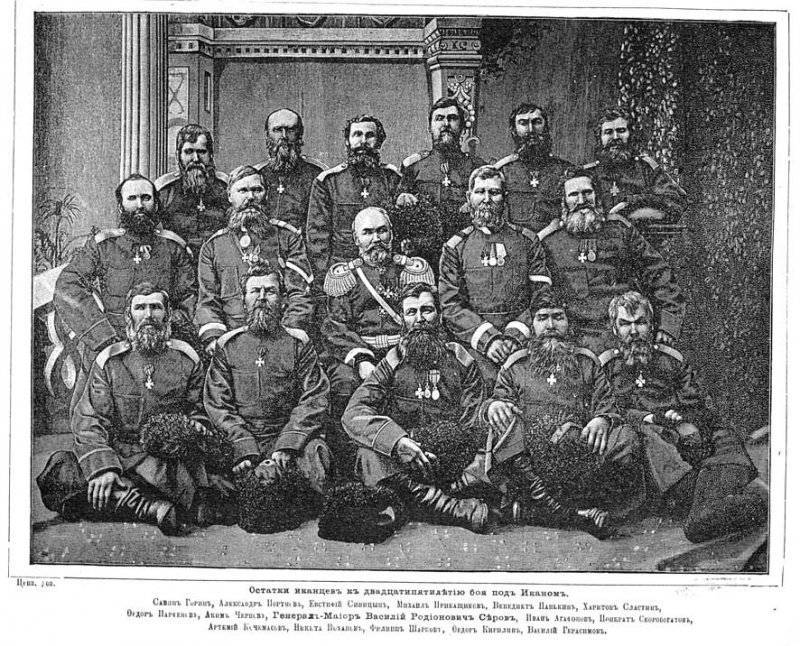Cossacks and the annexation of Turkestan
In 1865, Russian troops along with the Ural Cossacks occupy Tashkent. Established Turkestan region. In 1866, hostilities begin against an emir of Bukhara that pretends to Tashkent. Bukhara raid was repelled. In 1868, the Russian troops of General Kaufman, which include the Ural Cossacks, go to Samarkand, and the emir of Bukhara surrenders, recognizes the protectorate of Russia.
In 1869, Russian troops from the Transcaucasus land on the eastern shore of the Caspian Sea. In 1873, a campaign is organized on Khiva, the largest center of the slave trade in Central Asia. Through a waterless desert, troops approach Khiva from three sides - from Turkestan, from the Orenburg line and from the Caspian coast. Siberian and Semirechensk Cossacks, 5 of hundreds of Urals, 12 of hundreds of Orenburgs, Kizlyaro-Grebensky and Sunzhensko-Vladikavkaz regiments from Terek and even part of the Yeysk regiment of the Kuban army participate in the campaign. During the campaign, nature itself was defeated. Then, by a two-day assault on 28 and 29 May, Khiva is taken. In 1875, the Orenburg, Ural, Siberian and Semirechensk Cossacks help Russian troops capture Kokand.
Turkestan and the Transcaspian Territory, where Russia's power is becoming stronger, are divided by the Turkmen steppe, whose nomadic population continues to make raids. Before the oasis, where the Turkmen stronghold, Geok-Tepe, stood, there was a desert on the 500 versts. In 1877 and 1879 Russian troops twice unsuccessfully tried to occupy this fortress. In 1880, General Skobelev begins his march on Geok-Tepe from the Caspian coast. Along with him are the 1 th Labinsk, 1 th Poltava and 1 th Taman regiments of the Kuban Cossack army. Towards Skobelev from Turkestan moves detachment of General Kuropatkin, which includes the Orenburg and Ural Cossacks. Under Geok-Tepe squads meet. 23 December 1880 begins the siege of the fortress, 12 January 1881, it is taken by storm. For this battle, the 1 th Tamansky regiment of Kuban was awarded the St. George banner. Thus, the whole of Central Asia was annexed to Russia.
- Volgin Sergey
- Siberian Cossack Epic
Old Cossack ancestors
Cossacks and the annexation of Turkestan
Education Volga and Yaitsky Cossack Troops
Cossacks in Time of Troubles
Seniority (education) and the formation of the Don Cossack troops in the Moscow service
Azov seat and the transition of the Don troops in the Moscow service
Formation of the Dnieper and Zaporizhia troops and their service to the Polish-Lithuanian state
The transfer of the Cossack army hetman to the Moscow service
Treason of Mazepa and the pogrom of Cossack liberties by Tsar Peter
The uprising of Pugachev and the elimination of the Dnieper Cossacks by Empress Catherine
Cossacks in World War 1812 of the year. Part I, pre-war
Cossacks in World War 1812 of the year. Part II, the invasion and expulsion of Napoleon
Cossacks in World War 1812 of the year. Part III, foreign campaign


Information